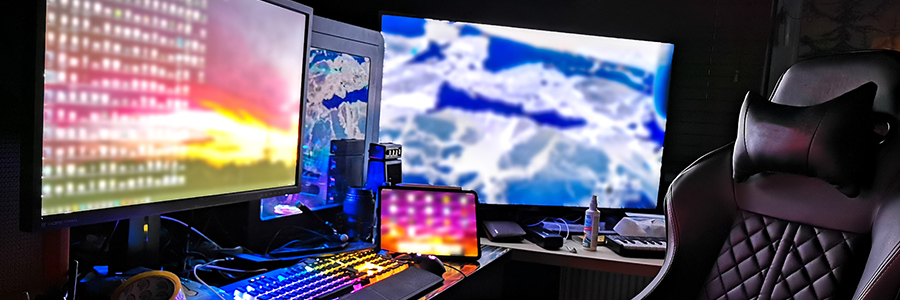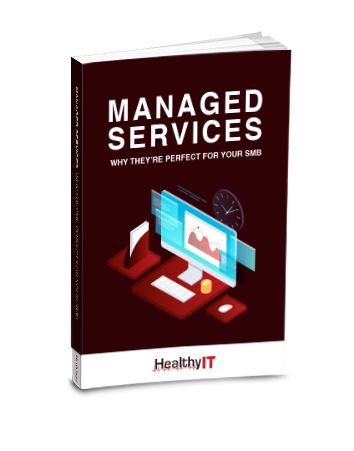Desktops, laptops, servers, computer mice, and other IT hardware and components don’t last forever. At some point, even the best-cared-for computers will start to show their age. While replacing poor-performing equipment may seem like the simplest solution, it's not always the best option. There are also costs and other considerations that every business owner needs to factor into their decision-making.
Luckily, if you’re a business owner in the Metro New York area, a local managed IT services provider like Healthy IT can guide you in making the best IT decision for your company.
Making the right choice: Replace or repair?
A crucial aspect of maintaining a well-oiled IT infrastructure is knowing when to seek out repairs and when it’s time for an upgrade. We recommend weighing the pros and cons. If a piece of equipment is starting to fail frequently, it might be time for an upgrade. On the other hand, if it's just a matter of aesthetics, you may be able to wait a bit longer.
Also, factor in the results of a cost-benefit analysis, as it may be more cost-effective to replace a piece of hardware rather than repair it. For instance, if a computer is several years old, the parts needed to repair it may no longer be available. In this case, you would be saving more money by buying a new computer.
Read also: Is it time to upgrade my computer hardware?
Most computers will remain functional for at least 5–8 years before they need to be replaced. However, different factors come into play in determining a computer's lifespan, such as how well it was maintained.
You should also consider how the machine's current performance impacts productivity. In many cases, newer machines can lead to increased productivity. So if your business is constantly growing and you're finding that old IT infrastructure can't keep up with the high demand, new IT hardware may be exactly what you need.
What your business needs to know about IT obsolescence
Obsolescence pertains to when a piece of technology becomes outdated and is no longer supported by the manufacturer. This can happen for a number of reasons, such as changes in technology or the discontinuation of parts. When a piece of hardware or its parts become obsolete, it almost always needs to be replaced.
So take the time to consider all the factors involved, and you should be able to make the right decision for your business.
Telltale signs you need to replace your IT hardware
These red flags will tell you that it's time for new IT hardware
1. You're constantly having to call in IT support
Hardware degrades and breaks down over time, so if you're calling IT support more and more often, it's probably time for an upgrade.
2. Employees are complaining about slow performance
Degraded hardware can gradually impact your computers' speed and performance, which can be frustrating for staff who have to deal with technical issues as they try to get work done. So if your employees are constantly complaining about slow-performing machines, then your hardware may no longer be up to par.
3. Downtime events are becoming more frequent
When hardware breaks down, it can cause your computers to crash or experience other problems that can lead to downtime. If you're finding that your business is losing productivity due to increased downtime, it's time to consider upgrading.
4. IT repair costs are becoming more expensive
Increased IT repair costs could also be a sign that your current hardware is no longer able to meet your needs. While it’s normal to needsome of your IT hardware repaired, there are red flags that you need to watch out for to make sure you’re not overspending on repairs. Note that IT repair costs for legacy technology may skyrocket over time as it becomes harder to find spare parts for these and people who can fix them. In addition, older tech tends to break down more often, which could further raise your spending on repairs.
5. You're not able to keep up with the competition
If you find that your business is falling behind the competition, it might be because their IT infrastructure is more advanced than yours. To stay competitive in today's market, it's essential to have the latest hardware, or at least, hardware that can help you stay competitive.
Newer hardware can help improve the performance of your computers, reduce downtime, and lower your overall IT costs. Healthy IT's professionals can help assess your IT hardware needs. Contact us today.


